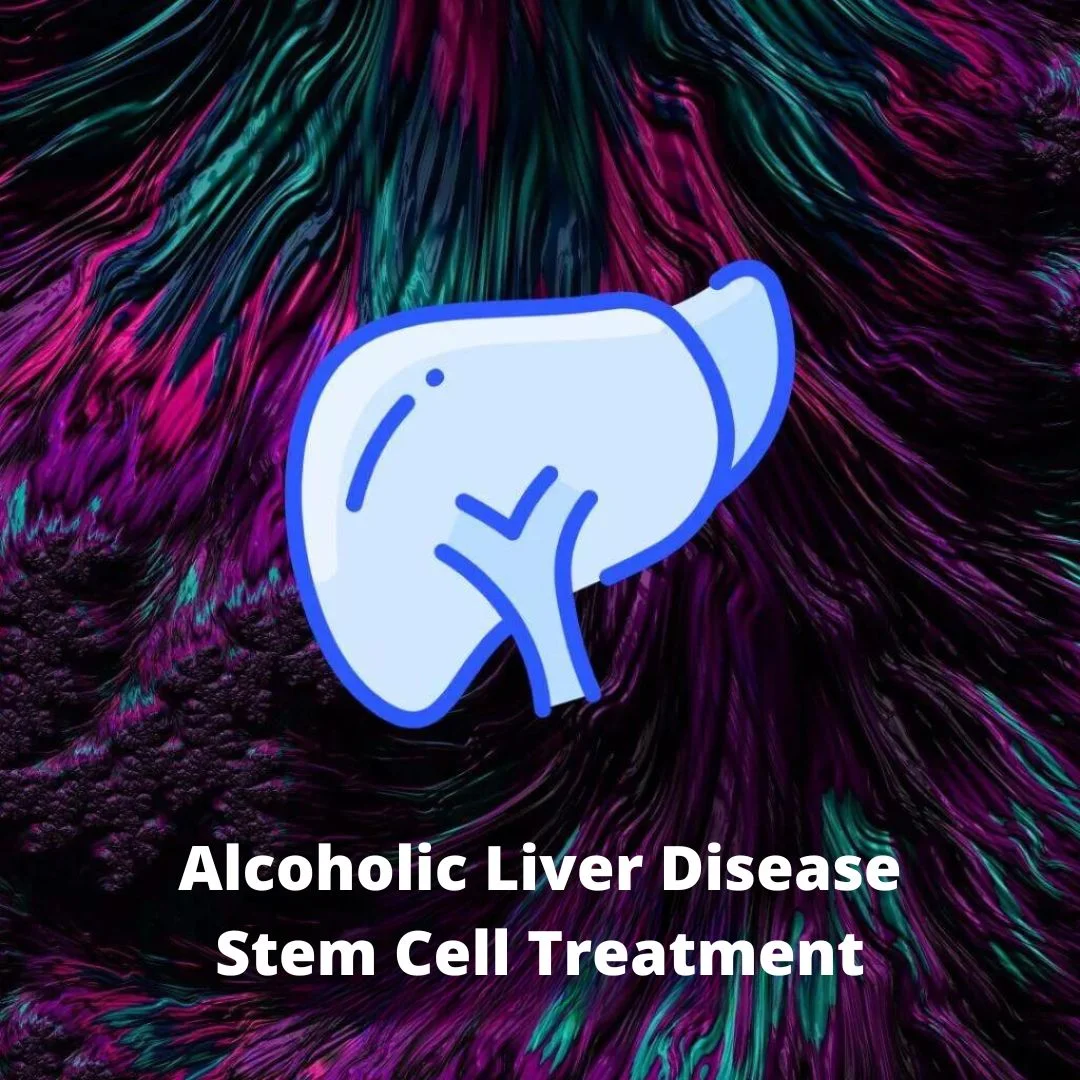Alcoholic Liver Disease Stem Cell Treatment at Dream Body Clinic
The Alcoholic Liver Disease Stem Cell Treatment at Dream Body Clinic offers a potential solution for various conditions associated with alcoholic liver disease (ALD), offering new hope for individuals facing liver-related challenges:
- Alcoholic liver disease (ALD)
- Liver fibrosis and cirrhosis
- Hepatitis C or B virus-induced liver damage
The regenerative potential of Mesenchymal Stem Cells (MSCs) in Alcoholic Liver Disease
Mesenchymal Stem Cells (MSCs) play a pivotal role in guiding the regeneration and differentiation of diverse cell types, including hepatocytes, cholangiocytes, and bile duct cells. This property is crucial for the regeneration and restoration of liver tissue following damage.
Upon administration, MSCs migrate to the site of liver injury, releasing growth factors, anti-inflammatory cytokines, and extracellular matrix proteins. This microenvironment supports the regeneration and repair of liver cells, potentially offering a therapeutic avenue for the treatment of alcoholic liver disease.
Key therapeutic mechanisms of MSCs in treating alcoholic liver disease:
Facilitating liver cell regeneration: MSCs possess the capability to differentiate into various liver cell types, including hepatocytes, cholangiocytes, and bile duct cells. This differentiation potential aids in the repair and restoration of damaged liver tissue, contributing to improved liver function.
- Alleviating inflammation: The immunomodulatory properties of MSCs enable them to dampen harmful immune responses and reduce inflammation associated with alcoholic liver disease.
- Halting liver fibrosis progression: MSCs hold the ability to inhibit the activation of liver stellate cells, responsible for liver fibrosis. This inhibition can potentially arrest fibrosis advancement and enhance overall liver function.
- Modulating immune responses: MSCs exert influence over immune cells implicated in the immune response against liver disease. This modulation can help regulate immune reactions, mitigate liver damage, and foster liver regeneration and repair.
- Boosting liver cell survival: By releasing growth factors, cytokines, and extracellular matrix proteins, MSCs enhance the survival of liver cells, creating a conducive environment that supports cell regeneration and recovery.
- Augmenting liver cell transplantation effectiveness: MSCs can complement liver cell transplantation, potentially improving transplantation outcomes and efficacy.
- Mitigating oxidative stress: MSCs can counter oxidative stress in the liver, a hallmark of liver disease that often leads to cellular damage and inflammation.
- Inhibition of liver stellate cell activation: These cells are pivotal in liver fibrosis development.
Collectively, the multifaceted properties of MSCs offer a promising approach for the treatment of alcoholic liver disease. This treatment avenue holds potential for promoting liver tissue regeneration, curbing inflammation, and preventing or halting liver fibrosis.
Impact of MSCs on Hepatocytes
Hepatocytes, critical components of liver tissue, engage in diverse functions crucial for liver health. These functions include protein synthesis and storage, bile production and secretion, detoxification, and metabolism. Given the continuous regeneration of the liver and hepatocytes, the interaction with Mesenchymal Stem Cells (MSCs) bears significance:
- Stimulation of hepatocyte proliferation: MSCs can bolster the proliferation of hepatocytes, encouraging the growth of new, healthy liver cells to replace damaged ones. This aspect is particularly vital when liver disease disrupts the natural regenerative process.
- Enhancement of liver function: MSCs secrete growth factors and cytokines that support liver function, amplifying the ability of hepatocytes to perform metabolic and excretory roles.
- Induction of regeneration: MSCs possess the capacity to stimulate the regeneration of liver tissue by enlisting other stem cells and facilitating new blood vessel formation.
- Mitigation of inflammation: Through the secretion of anti-inflammatory cytokines, MSCs can alleviate inflammation within the liver, safeguarding hepatocytes from further harm.
- Protection against oxidative stress: MSCs furnish hepatocytes with protection against oxidative stress, a common element of liver disease that contributes to cell damage.
Overall, MSCs influence hepatocytes positively, propelling regeneration, fortifying liver function, and offering defenses against detrimental factors that jeopardize cell health and viability.
Implications for Cholangiocytes
Cholangiocytes, specialized epithelial cells lining the liver’s bile ducts, play a pivotal role in bile formation, secretion, and maintenance of bile flow. Key functions of cholangiocytes encompass bicarbonate secretion, bile production, and transport regulation:
- Bicarbonate secretion: Cholangiocytes secrete bicarbonate to neutralize acidic bile, averting harm to pancreatic ducts and the intestine.
- Bile production and modification: Cholangiocytes produce bile components and adjust bile composition, vital for optimal fat and fat-soluble vitamin digestion and absorption.
- Regulation of bile flow: Cholangiocytes respond to hormonal and neural signals, facilitating appropriate bile transport from the liver to the intestine.
- Bile duct repair: Cholangiocytes contribute to bile duct regeneration and repair after injury.
MSCs exhibit positive effects on cholangiocytes by supporting their survival, proliferation, and differentiation. Studies illustrate that MSCs secrete factors, including hepatocyte growth factor (HGF), insulin-like growth factor (IGF-1), and vascular endothelial growth factor (VEGF), promoting cholangiocyte growth, protection, and differentiation into functional bile duct cells.
Furthermore, MSCs modulate the immune response in the liver, addressing the development of cholangiopathies and bile duct disorders. Through immune response suppression, MSCs safeguard cholangiocytes against inflammatory and immune-induced damage associated with disease progression.
While further exploration is warranted, emerging evidence underscores the potential of MSCs in promoting cholangiocyte growth, function, differentiation, and inflammation reduction, suggesting their promising role in liver health restoration.
MSCs’ Role in Liver Fibrosis Inhibition
Mesenchymal Stem Cells (MSCs) contribute to liver fibrosis inhibition through mechanisms encompassing immune response modulation, inflammation reduction, and matrix remodeling induction. This concerted action targets hepatic stellate cells, the principal contributors to liver fibrosis:
- Immune response modulation: MSCs modulate immune cell function, including T-cells, B-cells, and natural killer (NK) cells, which participate in liver fibrosis-related immune responses. By influencing immune cell function, MSCs regulate immune reactions and avert further liver damage.
- Inflammation reduction: MSCs possess anti-inflammatory characteristics, curbing liver inflammation, a pivotal factor driving fibrosis progression.
- Matrix remodeling induction: MSCs prompt extracellular matrix protein remodeling, leading to the degradation of fibrotic tissue and the formation of new, healthy tissue.
- Growth factor secretion: MSCs release various growth factors fostering liver cell regeneration and counteracting fibrosis development. Notable examples include hepatocyte growth factor (HGF), transforming growth factor-beta (TGF-β), and insulin-like growth factor-1 (IGF-1).
By inhibiting liver fibrosis, MSCs exhibit the potential to impede liver damage progression and stimulate the regeneration of healthy liver tissue. Cumulatively, MSCs offer a promising strategy for managing liver fibrosis and associated liver disorders
MSCs’ Healing Mechanisms in Fatty Liver Disease and Cirrhosis
Mesenchymal Stem Cells (MSCs) offer a potential remedy for fatty liver disease and cirrhosis, with the capacity to promote cellular healing and regeneration, and potentially alleviate the accumulation of fat within the liver.
The mechanisms by which MSCs combat fat accumulation and reverse cirrhosis are intricate and not entirely elucidated. However, proposed modes of action include:
- Cell differentiation: MSCs guide the differentiation of hepatobiliary progenitor cells (HPCs), oval cells, or liver stem cells into hepatocytes and cholangiocytes. These differentiated cells contribute to liver function, aiding in fat removal and overall liver health.
- Anti-inflammatory effects: MSCs secrete anti-inflammatory cytokines, capable of regulating liver inflammation and its associated consequences, such as fat buildup.
- Immunomodulation effects: MSCs influence the liver’s immune response, curbing the release of pro-inflammatory agents that contribute to liver damage and inflammation, characteristic of fatty liver disease.
- Antioxidant effects: Through the release of antioxidants, MSCs protect liver cells against oxidative stress, a prime contributor to fatty liver disease. This protection fosters cell regeneration, aiding in fat reduction.
MSCs’ precise mechanisms in fat reduction remain subjects of ongoing research, but the potential therapeutic benefits in managing fatty liver disease and cirrhosis are encouraging.
Liver Failure Stem Cell Research
Research has unveiled the potential of stem cells as a treatment avenue for liver diseases, shedding light on their therapeutic promise. Some pertinent studies and topics include:
- Stem cells for liver diseases: Exploration of stem cell applications as a potential treatment option for various liver diseases.
- Therapeutic potential of umbilical cord stem cells: An investigation into the regenerative potential of umbilical cord stem cells for liver restoration.
- MSC therapy for liver fibrosis: A study delving into the utilization of mesenchymal stem cells for the treatment of liver fibrosis.
- Liver-specific gene expression in MSCs: Research examining the induction of liver-specific gene expression in mesenchymal stem cells.
- Antioxidant-upregulated MSCs: An exploration of the role of antioxidant-upregulated mesenchymal stem cells in reducing inflammation and enhancing fatty liver disease in cases of diet-induced obesity.
- Bone marrow-derived MSCs and diabetes-associated fatty liver: A study investigating the positive impact of bone marrow-derived mesenchymal stem cells on diabetes-associated fatty liver, particularly through mitochondria transformation.
- MSCs in metabolic-associated fatty liver disease: Research exploring the mechanisms by which mesenchymal stem cells act in cases of metabolic-associated fatty liver disease.
- Human umbilical cord-derived MSC therapy: An investigation into the therapeutic potential of human umbilical cord-derived mesenchymal stem cells in addressing nonalcoholic fatty liver disease in obese type 2 diabetic mice.
Liver Failure Stem Cell Studies
- Stem cells: a potential treatment option for liver diseases
- Therapeutic Potential of Umbilical Cord Stem Cells for Liver Regeneration
- Mesenchymal stem cell therapy for liver fibrosis
- The therapeutic promise of mesenchymal stem cells for liver restoration
- Improvement of liver function in liver cirrhosis patients after autologous mesenchymal stem cell injection: a phase I–II clinical trial
- Liver-specific gene expression in mesenchymal stem cells is induced by liver cells
- Antioxidant-upregulated mesenchymal stem cells reduce inflammation and improve fatty liver disease in diet-induced obesity
- Bone marrow derived-mesenchymal stem cell improves diabetes-associated fatty liver via mitochondria transformation in mice
- Mechanisms of Action of Mesenchymal Stem Cells in Metabolic-Associated Fatty Liver Disease
- Human umbilical cord-derived mesenchymal stem cell therapy ameliorates nonalcoholic fatty liver disease in obese type 2 diabetic mice
Side Effects and Risks
The administration of stem cell therapy for liver diseases poses minimal documented risks and side effects:
Slight fever and headache: Around 1 in 100 individuals may experience a mild fever or headache lasting a few hours or a day post-treatment. These symptoms can typically be alleviated with 500mg of Tylenol.
- Infection risk: Like any injection-based treatment, there is a potential risk of infection. However, stringent sterility protocols are maintained to mitigate this risk.
- Cancer history precaution: Patients with a history of cancer within the past 5 years are not typically candidates for treatment. While conclusive evidence linking stem cells to cancer exacerbation is lacking, safety considerations dictate a cautious approach.
Dream Body Clinic boasts over 8 years of experience cultivating mesenchymal stem cells, ensuring safety and efficacy. Certification attests to the high standards adhered to in stem cell administration. See Stem Cell Certification by Clicking Here
Duration of Liver Disease Stem Cell Treatment Results
The outcomes of liver disease stem cell treatment can extend for several years or potentially indefinitely due to the regenerative nature of the therapy. New liver tissue generated by stem cells ensures enduring improvements. Stem cells additionally reprogram the immune system, promoting healthy functionality. This lasting effect stems from genuine tissue regeneration, distinct from symptomatic masking.
Intravenously administered MSCs remain active in the system for 8 to 12 months. During this period, they interact with immune cells, targeting inflammation for cellular regeneration. Post-differentiation into bone, fat, or cartilage cells, immune systems eliminate MSCs containing donor HLA markers without adverse reactions. Some MSCs integrate into capillaries as pericytes, positively impacting the system.
Liver Disease Stem Cell Treatment signifies a return to the body’s innate healing abilities, akin to childhood healing processes.
Procuring Liver Disease Stem Cell Treatment
In summation, Liver Disease Stem Cell Treatment offers promise for those grappling with liver conditions. Dream Body Clinic tailors stem cell treatment to individual needs, fostering liver tissue repair and regeneration, possibly leading to enhanced liver function. Although this treatment may not be widely available, ongoing research underscores its potential as a viable alternative to traditional liver disease management methods. For those interested in delving deeper into this treatment avenue, a complimentary consultation can be scheduled at (833) 445-9089. If you are prepared to embark on the Liver Disease Stem Cell Treatment journey, details on booking can be found by clicking the image.

